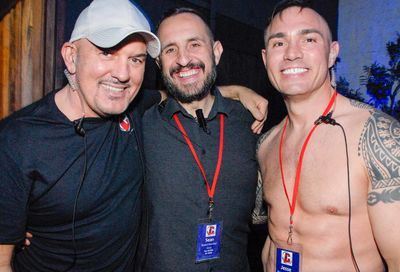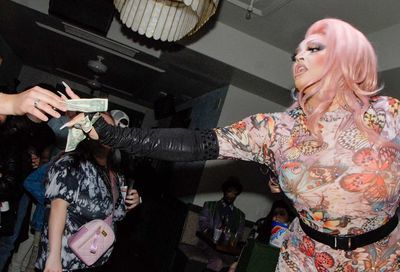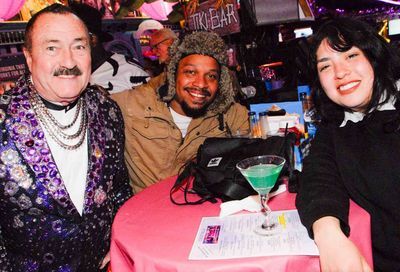Draw Your Weapon
When the narrative is made of deceptions, the takedown is truth
A friend on Facebook last weekend posted a provocative meme by Ricky Gervais that said, “Blasphemy: a law to protect an all-powerful, supernatural deity from getting its feelings hurt.”
Now that he mentions it, why does anyone put up with a god portrayed as an adolescent bully? Even if you believe it, why not shake your fist and tell it to go ahead and turn you to ashes if it insists on behaving like a jerk? I have noticed over decades of observation that people are very good at believing what they want; so why not decide to believe something less violent and more thoughtful and more humane? Sure, the universe might squash us like a bug, but in the meantime why not use the brains this ill-tempered paragon supposedly gave us and think for ourselves?
Much of what passes for political discourse relies not just on a religious perspective, but an especially primitive and coercive one, so that we are forever navigating around True Believers’ delicate sensibilities, as if the Eye of Sauron would catch us out at the first stray thought.
A close cousin of this sacred gullibility is the embrace of wild folktales that substitute for evidence and reason. Thus Rep. Darrell Issa (R-Calif.) seeks partisan advantage by subpoenaing Secretary of State John Kerry to testify at yet another congressional hearing on the phony Benghazi scandal. A deadbeat rancher who refuses to pay for his use of public land inspires his acolytes with descriptions of what he learned about the faults of The Negro by driving past the projects in North Las Vegas. The owner of the Los Angeles Clippers talks proudly of how he feeds and clothes and houses his mostly black players as if they were “welfare queens” and not professional athletes who make him pots of money.
As regards the working poor: If your most strenuous act on a given workday involves getting up to take something off the printer or go to lunch, how do you convince yourself of the undeserving nature of people who work much harder for much less to provide you with things you take for granted? How can anyone stand to be such an obnoxious ingrate? How dare we dismiss others as lazy?
Part of the answer is that by disparaging others we hope to deflect the heat from ourselves. This is the origin of scapegoats. We pour our sins onto the ritual victim to get ourselves off the hook. I am not so worried about NBA players; they are better able to defend themselves than children being denied their vaccinations or gay Ugandans being raped with police truncheons. In those less media-saturated stories, we see utterly unnecessary suffering fueled by malicious caricatures or fairytales.
Sometimes the reigning lies are cultural signposts passed down generations. Other times they are like violent storms conjured out of changes in air pressure. “What the hell was that?” we wonder as we survey wreckage, like otherwise decent people after one more denial of justice causes a community to explode. The entitlement of the socially privileged is written into the law along with the invisible man’s disentitlement. Nothing to see here. We glide past life ignoring the unsightly consequences of preserving favored narratives.
Why accept someone else’s story when it relegates you forever to a supporting role? Why worship your oppressor’s god? Why are we still discussing this? Imagine the shock of the ruling class the day their underlings realize they are not sheep, rise from their complacency, and seize the mechanisms of government. It can begin as unobtrusively as picking up a pencil in a voting booth. They don’t think you have the nerve. Go ahead. Make their day.
Richard J. Rosendall is a writer and activist. He can be reached at rrosendall@starpower.net.
Support Metro Weekly’s Journalism
These are challenging times for news organizations. And yet it’s crucial we stay active and provide vital resources and information to both our local readers and the world. So won’t you please take a moment and consider supporting Metro Weekly with a membership? For as little as $5 a month, you can help ensure Metro Weekly magazine and MetroWeekly.com remain free, viable resources as we provide the best, most diverse, culturally-resonant LGBTQ coverage in both the D.C. region and around the world. Memberships come with exclusive perks and discounts, your own personal digital delivery of each week’s magazine (and an archive), access to our Member's Lounge when it launches this fall, and exclusive members-only items like Metro Weekly Membership Mugs and Tote Bags! Check out all our membership levels here and please join us today!





















